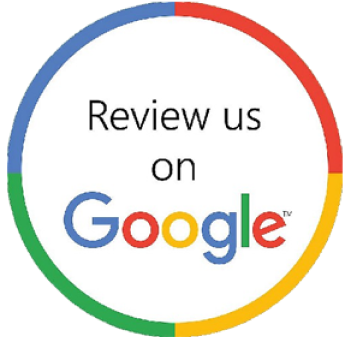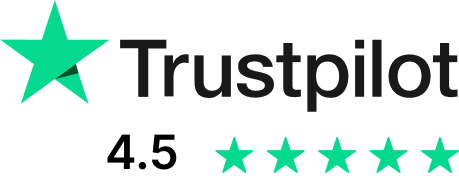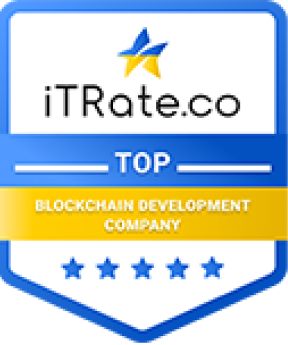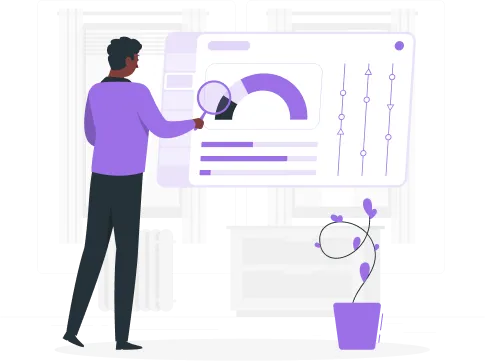
System Audit Services
System audit is comprehensive examination and evaluation process that explore various fact of an information system. We include assessing security measures ensuring compliance with regulations, evaluating performance and validating configurations. The ultimate goal is to identity vulnerabilities, mitigate risk and optimize the functionality.
Objective Definition
Begin by conducting a through assessment of your goals and challenges and clearly define the your aims to achieve through the system audit. It is identifying security vulnerabilities ensuring compliance with industry regulations or optimizing system performance particulate these objectives with precision.Document in detail which systems, applications and data are included. Specify whether the audit covers physical and virtual assets, cloud service and third-party integrations.
Stakeholder Engagement
Actively involve representative from IT, security, compliance and business units in the planning process. Conduct workspaces or meetings to gather insights on critical areas of concern and specific requirements from each department.This engagement not only provides a holistic perspective but also fosters a sense of ownership and collaboration. Engage stakeholder in the early stages to foster collaboration and ensure that the audit addresses their concerns and requirement.
Tools And Methodology Selection
Assess the organization technology landscape to determine the most suitable audit tools. Consider using vulnerability scanners, penetration testing tools and compliance assessment framework.Decide on the balance between automated and manual testing based on the complexity of the system and the depth of assessment required and ensure that selected tools align with industry best practices and compliance standards.
Resource Allocation
The skill and availability on internal staff. That certain skill are lacking consider training or hiring external expert. allocated dedicated time for audit activities, avoiding overloading staff with regular duties.Develop a budget that covers tools, training and any external audit services required. External auditors bring in fresh perspectives and careful budget planning ensures adequate financial support for the audit.
Communication of Audit Plan
Develop a communication plan that includes regular updates to executives, department heads and staff. Clearly articulate the audit plan, including its goals, timeline and potential impacts on daily operations.By the hold briefing sessions with executives to ensure their support and understanding and after establish a communication channel for stakeholders to ask questions or raise concerns throughout the audit process.By the hold briefing sessions with executives to ensure their support and understanding and after establish a communication channel for stakeholders to ask questions or raise concerns throughout the audit process.
Continuous Monitoring Integration
Our integrate continuous monitoring practices into the audit plan. Select tools that provide real time insights into system activities, security events and performance metrics. This proactive approach enhance the organizations ability to detect and respond to emerging threats and vulnerabilities.Select tools that offer continuous monitoring for real time insights into system audit. Regularly update and fine-tune monitoring configurations based on audit findings and emerging threats.
Post-Audit Action Planning
Categorize audit findings based on severity and potential impact on the organization. Develop an action plan that prioritizes addressing critical issues first. Clearly define responsibilities for implementing changes and improvements.Establish a post-audit review process to evaluate the effectiveness of remediation efforts and identify areas for ongoing improvement. A system audit development with these meticulous details ensures a comprehensive well executed and meaningful assessment.
Documentation Framework
A robust documentation framework that covers policies, procedures, configurations and findings. Develop templates for consistent documentation of audit processes and outcomes.Comprehensive documentation serves as a valuable resource for future audits, external reviews and compliance reporting. Robust documentation not only provides a clear audit trail but also serves as a reference for future audits and regulatory reporting.
Standout Features of System Audit Services

Comprehensive Scope
A standout system audit addresses various dimensions of the information system encompassing security, compliance, performance, configuration, data integrity, user activities and documentation. This comprehensive approach ensures a thorough examination of all critical aspects.

Continuous Monitoring
The system audit involve continuous monitoring rather than begin a one-time event. Regular and ongoing evaluations help organizations stay proactive in identity and addressing emerging risks ensuring that the information system remains resilient over time.

Real-time Reporting And Analysis
Ability to generate real-time reports and conduct immediate analysis of audit findings is crucial. This feature enables organizations to respond promptly to identified risks and make informed decisions to improve the system overall security and performance.

Scalability
A standout system audit framework is scalable to accommodate the growth and changes in an organizations information system. It should be able to handle increasing data volumes, additional system components and evolving business processes without compromising its effectiveness.
System Audit De velopment Benefits
The full potential of your system with a comprehensive system audit and the benefits of enhanced security, compliance assurance, risk mitigation and optimized performance. Safeguard against potential financial losses ensure data integrity and foster user accountability.
Compliance Assurance
A verification of compliance with industry regulations, legal requirements and internal policies. This ensures that the organization operates within the framework of applicable laws and standards, reducing the risk of legal and regulatory penalties.
Cost Saving
Prevention of potential financial losses due to security breaches, downtime or non-compliance. System audits help organizations avoid the costs associated with data recovery legal consequences and reputational damage.
Regulatory Flexibility
Regular system audits enable organizations to stay agile and adapt quickly to changes in regulatory requirements. This flexibility ensures ongoing compliance, reducing the risk of regulatory fines and penalties.
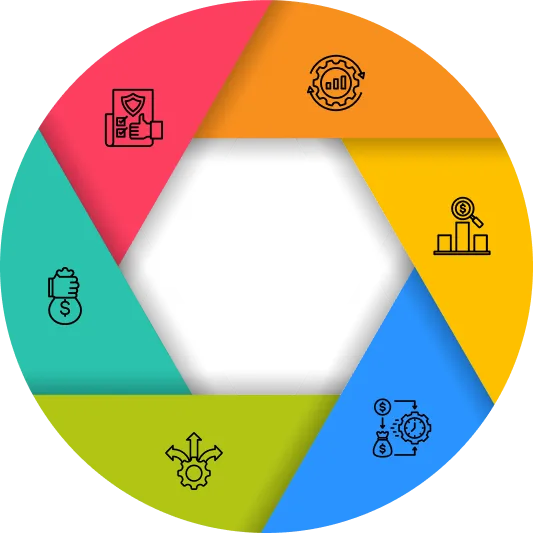
Resource Optimization
Audits provide insights into the efficiency of resource allocation. Organizations can optimize their technology investments by identifying areas where improvements or upgrades will have the most significant impact on achieving business goals.
Competitive Advantage
That the prioritize and showcase their commitment to security and efficiency through regular system audits gain a competitive advantage. This commitment becomes a differentiator in the market, instilling confidence in customers and partners who prioritize working with secure and trustworthy entities.
Long Term Cost Effective
The long-term cost-effectiveness is realized through the prevention of major security incidents. By identifying and addressing vulnerabilities early, organizations avoid the potentially exorbitant costs associated with data breaches, legal consequences and reputational damage.
How Our System Audit Work
Scope Definition
Determine the scope of the audit, specifying the systems, processes and components that will be reviewed. The audit should begin with well-defined objectives. Whether the focus is on security, compliance, efficiency or other specific aspects having clear goals ensures that the audit is targeted and provides actionable insights.
Thorough Data collection And Analysis
Gathering comprehensive information about the systems, processes or controls is crucial. This includes reviewing documentation, conducting interviews and performing technical assessments. Analysis of collected data helps identify vulnerabilities, deviations from standards and areas for improvement.
Identify And prioritize Risks
A risk assessment is a fundamental aspect of a system audit by identifying and prioritizing risk, auditors can focus on areas with the highest potential impact on the organization. This informs decision making and resource allocation for mitigating identified risks.
Clear Reporting And Recommendations
The effectiveness of a system audit is often judged by the clarity and usefulness of the final report. Communicate findings, vulnerabilities and recommendations in a clear and understandable manner. Providing actionable recommendations helps the organization address weaknesses and enhance its overall system effectiveness.
Our Expert Team

Streamlined Project Management
Our expert team is managing the audit process effectively requires project management skills. This involves planning, organizing resources, setting timelines and ensuring that the audit is conducted efficiently.

Technical expertise
A solid foundation in information system technology infrastructure and cybersecurity principles is essential. This includes understanding the architecture and configurations of various system and having programming and scripting skills can be valuable.

Industry Expertise
Recognizing that industries have unique challenges, our team includes specialists with industry-specific expertise. Whether you operate in finance, healthcare or manufacturing, we understand the nuances of your industry and tailor our audits accordingly.

Customize Solution For Diverse Needs
Our team includes specialists with industry specific expertise. This enable us to customize our audit approaches to address the specific needs and compliance requirements of your sector. We adapt our methodologies to the size and complexity of your organization.
A Snapshot of Our Success (Stats)

Total Experience
0Years

Investment Raised for Startups
0Million USD

Projects Completed
0

Tech Experts on Board
0

Global Presence
0Countries

Client Retention
0
Scope of The System Audit Development






Types of System Audit Development
Financial System Audit
The financial audit processes and systems of an organization. It ensures the accuracy of financial data, compliance with accounting standards and the effectiveness of financial control.
Information System Audit
Concentrates on the information technology infrastructure, including hardware, software network and data management. Information system audits assess security controls, data integrity and adherence to IT policies.
Security System Audit
Specifically examines the security measures in place to protect an organizations assets including sensitive data, network and systems. This type of audit assesses vulnerabilities access controls and overall cybersecurity posture.
Compliance system Audit
Ensure that an organization adhere to external regulations, industry standards and internal policies. This audit is critical for industries with strict compliance requirements such as healthcare or finance.
Operational System Audit
Examines the efficiency and effectiveness of operational processes within an organization. It assesses whether systems are meeting operational goals, identifies areas for improvement and enhanced overall operational performance.
Business Continuity And Disaster Recovery Audit
Evaluate an organizational plans and capabilities to continue operations in the event of disruption or disasters. This audit assesses the effectiveness of business continuity and disaster recovery strategies ensuring that system can be restored and maintained during crises.
We Start Here
The potential for a secure and resilient IT environment with our comprehensive system audit development services. As we embark on this transformative journey, our approach is anchored in enhancing your organizations cybersecurity ensuring regulatory compliance and fortifying access controls.

Response Planning
Creation and refinement of an incident response plan for swift and effective action to simulation exercises to test the organization readiness in the event of a security incident. That continuous improvement of incident response procedures based on lessons learned.

Regulatory Compliance Assurance
Comprehensive evaluation of compliance with industry regulations and international standards and alignment with regulatory framework such as ISO and HIPAA. Review and enhancement of policies and procedures to ensure legal and regulatory adherence.

Holistic Approach
Our philosophy signifies a holistic and systematic approach to system audit development. Collaboration with your team ti understand unique business needs and tailor the audit process accordingly and continuous improvement cycles to adapt to evolving threats technologies and organizational change.

Data Security Excellence
Assessment of data encryption measures and robust protocols. Evaluation of data storage and transmission security to protect sensitive information and ensuring compliance with data protection regulations and privacy standards for comprehensive data security.
Why Choose Tanθ As Your System Audit Development?

Comprehensive Assessment
We conduct a comprehensive assessment covering various aspects of your information system including security controls, access management and data protection And allow for a thorough risk assessment identifying potential vulnerabilities and risk that might not be immediately apparent.

Time And Resource Efficiency
Our company efficiently execute audit processes and saving your organizational time and optimize the use of resources ensuring that the audit is thorough without causing unnecessary disruption to daily operations.

Cutting-Edge Technology
We leverage state-of-the-art tools and technologies for system audit to ensuring accuracy, efficiency and the ability to identify advanced cyber threats. The latest cybersecurity trends and technologies innovative approaches into their audit processes.

Customized Solutions
Reputable firms provide customized solutions based on organizations unique needs and requirement. We consider the scalability of their solution anticipating the growth of your organization and ensuring that the audit framework remains effective over time.
FAQs - System Audit Services
Latest Blogs
Uncover fresh insights and expert strategies in our newest blog! Dive into the world of user engagement and learn how to create meaningful interactions that keep visitors coming back.Ready to transform clicks into connections?Explore our blog now!

- Games

- India

- United States

316 8th Avenue, New York, NY 10012, United States

[email protected]

- Canada

40 A, 100 Main St E, Hamilton, Ontario L8N 3W7

[email protected]

- UAE

406, Building 185 Street 10,Jebel Ali Village,Discovery Gardens

[email protected]

- United Kingdom

28 S. Green Lake Court Fleming Island, FL 32003

[email protected]







